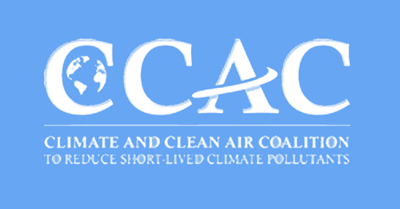
MEA Bulletin – Guest Article No. 96 – Thursday, 15 July 2010
By Romina Picolotti (translated from Spanish)*
Full Article
If the world should blow itself up, the last audible voice would be that of an expert saying it can’t be done. Peter Ustinov
echnique would be most suitable to put out the encroaching flames. All of a sudden a group of experienced volunteer firefighters decked out with fire equipment, a water truck, and ready to put out the fire show up behind the others. As a homeowner in desperation over advancing flames, what do you do? The answer is a no-brainer, you ask the guys with the solution to put out the fire! The metaphor alludes to the Montreal Protocol (MP), hailed as the most successful environmental treaty to date. From 1990 to 2010, MP’s control measures on production and consumption of ozone-depleting substances (ODS) will have reduced greenhouse gas emissions by the equivalent of 135 gigatons of CO2.This is equivalent to 11 gigatons a year, four to five times the reductions targeted in the first commitment period of the Kyoto Protocol. Yes, this is amazing! The Federated States of Micronesia used the metaphor of the house on fire to illustrate the opportunity before us to fully utilize the strength of the MP to combat the Planetary fire that climate change is becoming. Specifically, he referred to the opportunity to regulate the production and consumption of HFCs, which would produce the equivalent CO2 mitigation of more than 100 gigatons.This proposal, without a doubt, implies a great opportunity for developing countries, not only in terms of the substantive issues involved, but it also fundamentally highlights the political implications underlying the process. If we are looking for different results from climate negotiations, we mustn’t always do the same thing.
Utilizing the maximum potential offered under the MP to mitigate climate change, regulating the production and consumption of HFCs would require that industrialized countries and developing countries both assume “mitigation” obligations. Mitigation obligations in the context of the MP do not mean specific CO2 reduction targets. What it means is that developed and developing countries assume the obligation to regulate the production and consumption of HFCs, which are super greenhouse gases, and by doing so we mitigate global warming. Therefore, to assume this “mitigation” obligation under the MP context should not terrify us. This is precisely the value of utilizing the MP. Our largest challenge as developing countries is not to assume or not assume mitigation obligations, but rather it is to assume them in a context that is fair, and not to assume them in the current context of the UNFCCC. From the perspective of a developing country, assuming mitigation obligations without financing, without the transfer of technology, and without decision-making power is simply suicide. It would be however, politically wise to assume these obligations in the context of the MP and set a crucial precedent. The MP has demonstrated over its 23-year history that the technology is effectively transferred,and that industrialized countries have complied with their obligations, including financing what is needed so that developing countries can comply with their own obligations to control ODS after a suitable grace period. We, developing countries, have a full voice and equal vote on the decision-making process under the MP financing mechanism known as the Multilateral Fund. Finally, the MP has also demonstrated that it is capable of creating the necessary confidence amongst States to take bold and continuous steps forward in compliance with all of the established deadlines.
Moreover, developing countries have in many cases complied with obligations to reduce production and consumption of ODS before the
established deadlines. Everything we are calling for under the UNFCCC process we have already achieved under the MP framework. Advancing with the inclusion of HFCs under the jurisdiction of the MP would substantially strengthen developing countries in a proactive forum as countries that actively contribute to solutions in a fair agreement, and not as countries that can only claim and denounce. Developing countries can demonstrate that with the right institutional structure we are ready to do the job.
The political strategy hence, is to take advantage of the opportunity that is offered by the Federated States of Micronesia’s proposal to advance on pro-climate actions available under the MP, and utilize the MP framework to negotiate from a different vantage point in the UNFCCC process. This “other vantage point” shows what developing countries are able to achieve when industrialized countries comply with their obligations, when transfer of technology takes place, when the decision-making process includes developing country voices in a fair and equitable way, and when financing is made available.
The latest report on the UN Millennium Development Goals recognizes that “the unparalleled success of the Montreal Protocol shows that action on climate change is within our grasp”. Hopefully, we will wisely take advantage of this invaluable political opportunity that the Federated States of Micronesia and the Montreal Protocol are offering, and we will not succumb to Peter Ustinov’s foreshadowing of the tragic earth-ending expert voice suggesting a solution is beyond our reach.
*Romina Picolotti, formerly the Secretary of Environment of Argentina, heads the Center for Human Rights and Environment. She received EPA’s Climate Protection Award in 2008 for her leadership in securing historic commitment to accelerate the phase-out of HCFCs under the Montreal Protocol.
| Back to IISD RS “Linkages” home | Visit IISDnet | Send e-mail to IISD RS |
©2010, IISD. All rights reserved.







